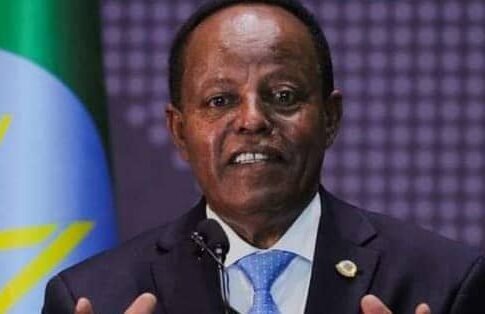In a significant development, Ethiopia’s parliament has approved the appointment of Taye Atske Selassie as the country’s new president, replacing Sahle-Work Zewde, the nation’s first female head of state.
Taye Atske Selassie, who served as foreign minister since February, assumed the largely ceremonial role, marking a new chapter in Ethiopian politics. The presidency holds significant symbolic value, while actual political power resides with Prime Minister Abiy Ahmed.
Sahle-Work Zewde’s departure follows reported disagreements with Prime Minister Abiy Ahmed, who initially supported her historic appointment in 2018. That move was hailed as a breakthrough for gender equality in Ethiopian politics.
READ MORE: YIELD Africa Foundation Wins Impactful NGO Of The Year
In a cryptic message on X, Sahle-Work hinted at her dissatisfaction with staying silent for the past year, stating, “Sometimes, silence can be deafening.” Sources close to the 74-year-old revealed she had grown increasingly unhappy and was eager to conclude her term, originally set to end later this month.
During her presidency, Sahle-Work advocated for peace across the country but faced criticism for not speaking out more forcefully against gender-based violence during the two-year civil war in Tigray.
Taye Atske Selassie, 68, an experienced diplomat with stints at the UN and in Egypt, is considered close to Abiy Ahmed. He was sworn in before lawmakers on Monday.
This change in leadership means Tanzania’s President Samia Suluhu Hassan is now Africa’s sole female head of state.
The development comes amid ongoing conflicts in Oromia and Amhara regions, where federal forces are battling local militias, resulting in hundreds of deaths and allegations of human rights abuses.
As Ethiopia navigates these challenges, Taye Atske Selassie’s presidency is expected to maintain continuity and stability, while many hope for renewed focus on addressing the country’s pressing issues.
With this transition, Ethiopia enters a new era, one that will undoubtedly shape the nation’s trajectory and the future of its people.




